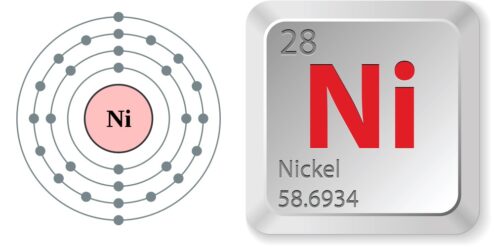Tea is a popular beverage consumed worldwide for its soothing properties and health benefits. However, it’s important to note that certain types of tea can contain traces of heavy metals, including nickel. Nickel is a naturally occurring element that can be found in various foods and drinks, including tea. While small amounts of nickel are essential for the human body, excessive intake can lead to health problems. This article will delve into the relationship between tea and nickel, identifying the types of tea with high nickel content, and providing tips on how to minimize nickel intake from tea.
Understanding the Relationship Between Tea and Nickel
Nickel is a trace element that can be found in the soil and water, which means it can be absorbed by tea plants during their growth. The nickel content in tea can vary depending on several factors, including the type of tea, the soil where the tea plant is grown, and the manufacturing process. It’s also worth noting that the nickel content can increase if the tea is brewed in nickel-plated utensils or stored in containers made of nickel.
Different types of tea can have varying levels of nickel. For instance, black tea and green tea are known to contain higher amounts of nickel compared to other types of tea. This is because these teas are often grown in areas with nickel-rich soil. The way the tea is processed can also influence its nickel content. For example, teas that undergo a longer fermentation process, like black tea, tend to have higher nickel levels.
Identifying Teas with High Nickel Content
Identifying teas with high nickel content can be challenging as the nickel content is not usually listed on the product label. However, some studies have shown that black tea, green tea, and certain herbal teas can contain higher levels of nickel. It’s also important to note that the nickel content can vary greatly from one brand to another, and even from one batch to another, depending on the soil and water conditions where the tea plants are grown.
In general, teas grown in areas with high levels of industrial pollution or in soils rich in heavy metals are more likely to have high nickel content. Therefore, it’s advisable to choose teas from reputable brands that source their tea leaves from regions known for their clean and pollution-free environment.
The Health Implications of Nickel in Tea
While small amounts of nickel are essential for the human body, excessive intake can lead to health problems. High levels of nickel can cause allergic reactions in some people, leading to symptoms such as skin rash, itching, and redness. Long-term exposure to high levels of nickel can also lead to more serious health issues, including lung and nasal cancer.
It’s important to note that the risk of experiencing health problems due to nickel intake from tea is relatively low for most people. However, individuals with nickel allergy or sensitivity, or those who consume large amounts of tea daily, may be at a higher risk.
How to Minimize Nickel Intake from Tea
There are several ways to minimize nickel intake from tea. First, choose teas from reputable brands that source their tea leaves from regions known for their clean and pollution-free environment. Second, avoid brewing tea in nickel-plated utensils or storing it in containers made of nickel.
Additionally, it’s advisable to consume a varied diet and not rely solely on tea as a source of hydration. This can help ensure that your intake of nickel and other heavy metals is within safe limits. Lastly, if you have a known nickel allergy or sensitivity, consider consulting a healthcare professional for personalized advice.
Expert Tips for Choosing Low-Nickel Teas
When choosing low-nickel teas, it’s important to consider the type of tea, the soil where the tea plant is grown, and the manufacturing process. As mentioned earlier, black tea and green tea tend to have higher nickel levels. Therefore, you may want to opt for other types of tea, such as white tea or oolong tea, which are known to have lower nickel content.
Choosing organic teas can also be a good option as they are grown without the use of synthetic fertilizers and pesticides, which can contribute to the accumulation of heavy metals in the soil. Moreover, teas that undergo a shorter fermentation process, like white tea and green tea, tend to have lower nickel levels compared to those that undergo a longer fermentation process.
Ensuring a Safe and Healthy Tea Drinking Experience
While the presence of nickel in tea can be a concern for some people, it’s important to remember that the risk of experiencing health problems due to nickel intake from tea is relatively low for most people. However, by choosing low-nickel teas, brewing tea in non-nickel utensils, and consuming a varied diet, you can further minimize your exposure to nickel and ensure a safe and healthy tea drinking experience.
In addition, if you have a known nickel allergy or sensitivity, or if you consume large amounts of tea daily, it’s advisable to consult a healthcare professional for personalized advice. They can provide guidance on safe levels of nickel intake and recommend suitable tea options based on your individual needs and preferences.
In conclusion, while certain types of tea can contain traces of nickel, the risk of experiencing health problems due to nickel intake from tea is relatively low for most people. However, by being aware of the types of tea with high nickel content and taking steps to minimize nickel intake, you can ensure a safe and healthy tea drinking experience. Remember, if you have any concerns about nickel in tea, it’s always best to consult a healthcare professional.
Per approfondire:
- "Nickel content in tea infusions and total diet in Poland": This study provides detailed information on the nickel content in various types of tea and the total diet in Poland.
- "Heavy metals in teas: Occurrence, dietary exposure, and health risk assessment": This research article discusses the presence of heavy metals, including nickel, in different types of teas and their potential health risks.
- "Nickel allergy: Symptoms, causes, and treatment": This article provides comprehensive information on nickel allergy, its symptoms, causes, and treatment options.
- "Tea and Health: Studies in Humans": This research article provides a comprehensive overview of the health benefits and potential risks associated with tea consumption.
- "Heavy metals in food crops: Health risks, fate, mechanisms, and management": This research article discusses the presence of heavy metals in food crops, including tea plants, and provides strategies for their management.


